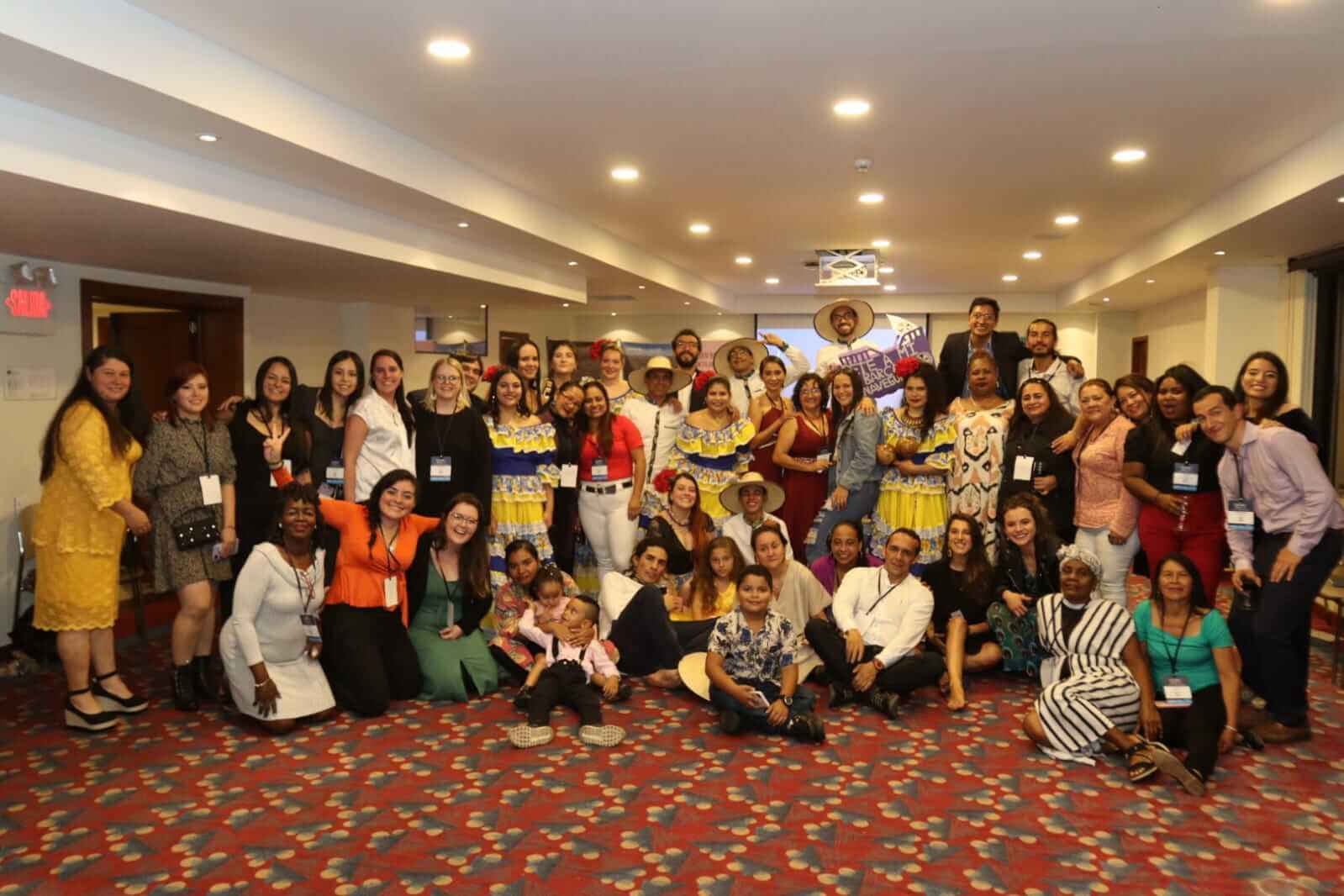RETEJIENDO SABERES: Women as Protagonists in the Mechanisms of Transitional Justice and Peace building in Colombia
- News
9 June 2022

After 5 years of learning, strengthening processes and building collective knowledge, the initiative Retejiendo Saberes (Reweaving Knowledge): “Weaving Memory, Forging Paths to Peace” culminated, with the participation of Colombian women from Valle del Cauca, Santander, Norte de Santander, Cesar, Antioquia, Nariño, and Venezuela.
The initiative was developed by Lawyers Without Borders Canada in the framework of the Transitional Justice and Women Project (JUSTRAM) between 2017 and 2022 with the financial support of Global Affairs Canada. This collective process aimed to contribute to the improvement of the conditions of access to justice for women and to generate confidence in institutions in order to stimulate their participation in transitional justice mechanisms in Colombia.
To achieve this, a methodology based on the pedagogy of popular education was used to socialize legal tools aimed at the collective construction of territorial agendas for women’s advocacy and enforceability with a gender, intersectional and territorial approach. At the same time, we sought to strengthen dialogue with the State and institutions.
In order to facilitate the exercise of victims’ rights, namely the right to truth, justice, reparation and guarantees of non-repetition in the Colombian post-agreement scenario, capacity building for women victims and survivors of serious human rights violations committed within and outside the framework of the armed conflict was achieved.
During the evaluation and sustainability activity of Retejiendo Saberes, one of the women participants said:
“Thanks to this process, I lost my fear. I was afraid of men’s repression of us. Thanks to the gender equality workshops in which I was able to participate, I lost my fear, now I am free”.
Another participant illustrates her process of autonomy and self-recognition by saying:
“We did not know that we were capable of bringing women together, of standing up and speaking our minds”.
According to Pascal Paradis, Director General of ASFC:
“The JUSTRAM project succeeded in strengthening the active and inclusive participation of women from different territories in transitional justice and peace-building mechanisms. Cases of serious human rights violations, particularly cases of sexual violence and extrajudicial executions, were documented and brought before the competent courts. In addition, the project enabled civil society to develop concrete proposals, recommendations, and solutions addressed to national and international authorities to promote gender-sensitive transitional justice measures”.
Retejiendo Saberes demonstrates how women in the territories most affected by the armed conflict and gender-based violence are key actors and subjects in the construction of a lasting peace. For this reason, Lawyers Without Borders Canada reiterates its commitment to accompany these participatory processes, in which bridges are built between civil society, state and international institutions and people in vulnerable situations. ASFC calls on international cooperation to remain committed to this path.